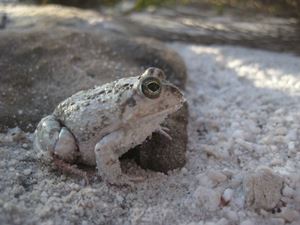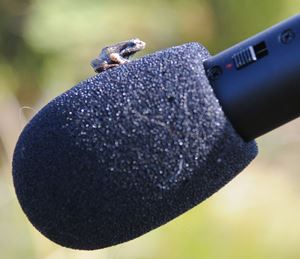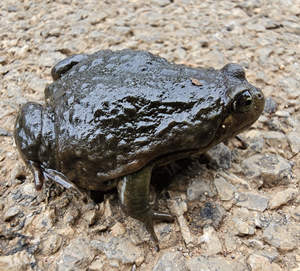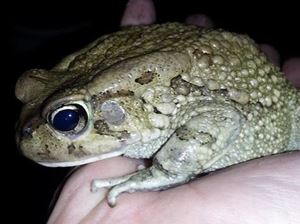American Bullfrogs are invasive in many parts of the world where they cause a heavy impact on their environment. But what part of their microbiome did they bring with them on this journey and what did they acquire locally? Moreover, did they gain, give or exchange microbes with native amphibians in their new habitats?
This study will attempt to answer this question by looking at one native and two invasive populations of American Bullfrogs and the species in areas in which they develop and breed. Our aim is to not only to identify the ASUs of bacteria, fungi and viruses, but determine their functional role in the gut microbiome of native and invasive hosts.
The MeaseyLab is looking for an international PhD student, preferably one who is familiar with American Bullfrogs in a native or invasive setting. Applicants should have already received their MSc (or be about to submit their thesis) and be capable in both field and laboratory.
This work relies heavily on bioinformatics and while prior experience with microbiome is not compulsory (but preferable), you will be expected to learn how to acquire the relevant skills. The project will also involve experiments in mesocosms that will rely on husbandry skills.
Suggested reading:
Fontaine, S.S., Kohl, K.D., 2020. Gut microbiota of invasive bullfrog tadpoles responds more rapidly to temperature than a noninvasive congener. Molecular Ecology 29, 2449–2462. https://doi.org/10.1111/mec.15487
Project Info
- Date | 28/10/2023
- Category | Doctoral Projects
- Place | Yunnan University
Share This
Time to apply
At Yunnan University, there are two calls each year for MSc and PhD students: 30 November and 30 April. The university favours local (YNU) students apply in November, and external students from overseas and other Chinese universities in April. Formal studies start in late August the same year of admission is granted.
At Stellenbosch University, it is possible to start a MSc or PhD on 1 January or 1 July each year. There are no formal application deadlines for postgraduate students, but starting in January is favoured as it aligns with the academic year.
Post-docs in both universities can apply and start at any time of the year.
Note that if you are coming from overseas, you will need to factor in time taken to obtain a study visa for either university. See the website of your local embassy for more details.
Hiring Post-Docs
Right now (mid-2023), the MeaseyLab is actively looking for two post-docs to fill positions in Yunnan University. Projects on rapid evolutionary responses in invasive animal species. Focus on microbiome, invasions and amphibian biodiversity. Salary starts at ¥180,000 (RMB). Good publication record is essential. If you are interested, please send an email: jmeasey@ynu.edu.cn
Funding Opportunities
Most important is to check out the Centre for Invasion Biology (C·I·B) webpage for student projects here. Not only do I advertise the latest projects here, but so do my colleagues at the C·I·B. Maybe you'll find something that you like?
|
NRF Freestanding Bursaries - South African Students only. Call usually closes in August each year. Visit the NRF website for more information. The South African NRF does hold some opportunities for collaborative funding.
|
|
Claude Leon Foundation - This foundation funds both South African and foreign postdoctoral scientists, who should increase the volume and quantity of research output, transfer technical skills and generally enhance the research culture.
|
|
The Royal Society in the UK
|
|
Marie Curie Outgoing International Fellowships
|
|
Or you could consider crowdfunding your own project...
|
Lots of funding opportunities have been compiled on the website Research Professional. You'll need to create an account but it will allow you access to lots of different funding opportunities:

Most of the funding for visiting academics will be from the visitor's own country. You should contact your research council and ask for South African bilateral funding possibilities.
Contact me if you want more information.




